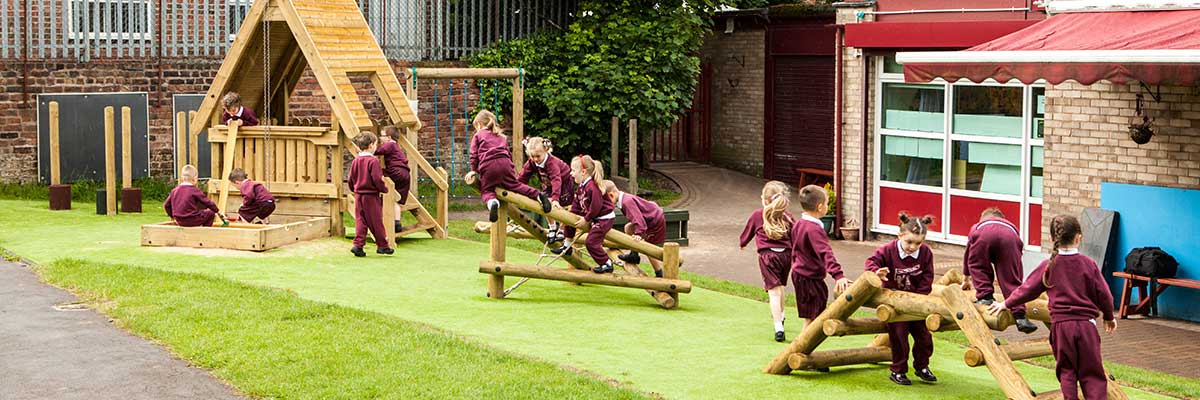Getting tomorrow's workforce playing
19 March 2018

The World Economic Forum engages the foremost political, business and other leaders of society to shape global, regional and industry agendas. At their recent annual meeting all the most influential people in global business joined together to talk about what they termed ‘the fourth industrial revolution’ - discussing a future in which robots and computers can perform many human jobs.
What does this have to do with playgrounds, we hear you ask?
When anticipating this future it stands to reason, said Ursuala Burns (chairman of the supervisory board at telecom group VEON, and former CEO of Xerox) “...we [will] have to fire a lot of people”.
And, whilst many people came forward with suggestions to prevent this - retraining workers, offering changes in basic income and contracts - one group of CEOs decided to look a little more creatively, at the challenge. In fact, they presented a new and scientifically grounded solution to the problem: play.
Encouraging children to play more “will equip them to be relevant to the workplace and to society,” said John Goodwin, CEO of the Lego Foundation and the former chief financial officer for The Lego Group.
“There are four things AI cannot do as well as humans: creativity, dexterity, compassion, and complexity”, said Kai Fu Lee, a Taiwanese venture capitalist who opened Google’s China office and who has worked in artificial intelligence (AI) for more than three decades. He explained that success in the future had the development of skills unique to humans at its centre. Empathy, he said, would be paramount. And the discussion continued to talk about the ways in which play could be used to do this.
Laying the foundations for imaginative problem-solving starts early, said Goodwin, who was joined at the Forum by two other play enthusiasts: Jesper Brodin, CEO of IKEA, and Paul Polman, the CEO of Unilever.
“We don’t look at kids as economic capital,” said Goodwin. “We are vested in children developing from a child-centric perspective”.
This group of CEOs used the World Economic Forum Annual Meeting to promote the new, Real Play Coalition. Working in partnership with National Geographic, the group is committed to creating a movement that prioritises the importance of play as not only something that lets kids be kids, but as something that sparks the fire for a child’s development and learning. Partnering with children, parents, teachers, business, NGOs, stakeholders and society, the Real Play Coalition will empower and facilitate children’s opportunities to grow and learn through play.
As the group said:
“Our fast-changing world, including the growth of technologies such as machine learning and artificial intelligence, means that children entering primary school today will be working in jobs that are yet to exist. This means we need to rethink and evolve our education systems, our on-the-job training programmes and our evaluation processes so that the children of tomorrow are poised for what the future may hold. The importance of the skills play promotes in the face of our changing world has never been higher. When children play, for instance, they practice original thinking, which is one of the main cognitive processes in creativity. Construction play in early childhood correlates to the development of spatial visualisation skills, which are strongly connected to mathematic capabilities and problem-solving skills in later life.
“The more our children play today, the more prepared future generations will be. Play is needed to endow us with leaders who can resolve conflict, problem solve, build socially connected communities and inspire society to flourish. We are committed to the idea that any child, wherever they are in the world, could be such a leader. Join us in protecting their real play.”
It’s no secret that, here at Playforce, we share this view. We’re committed to getting more children playing and we entirely endorse the science behind the value of play, in terms of learning, skills and development. In fact, as one of the first organisations to start measuring the impact that play has on schools and children, we are delighted to see play gaining a global platform, with a clear, positive message.
 Back to News
Back to News